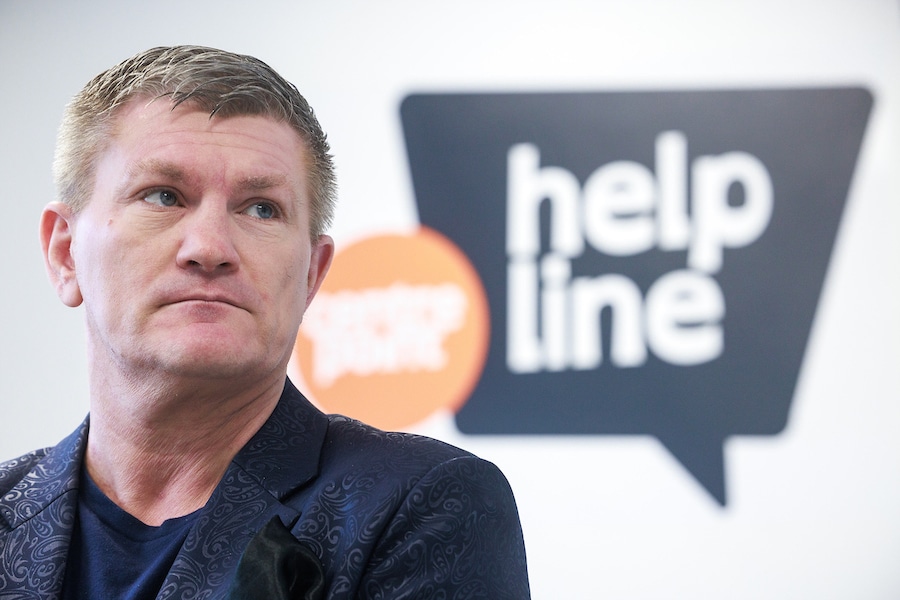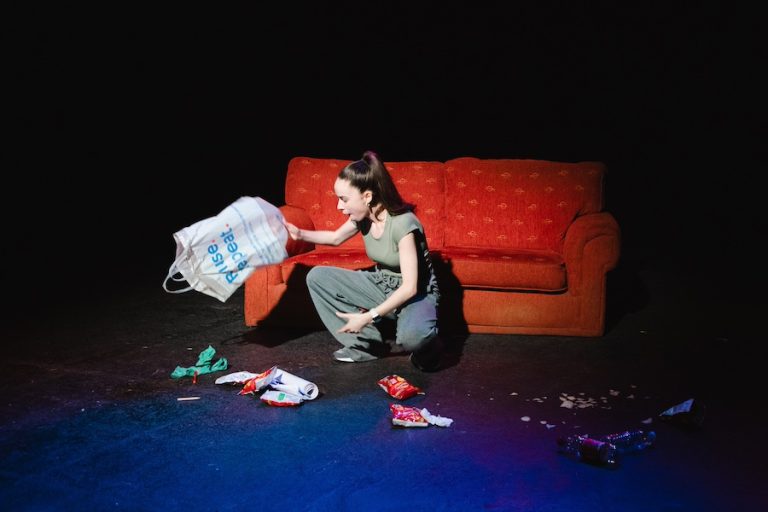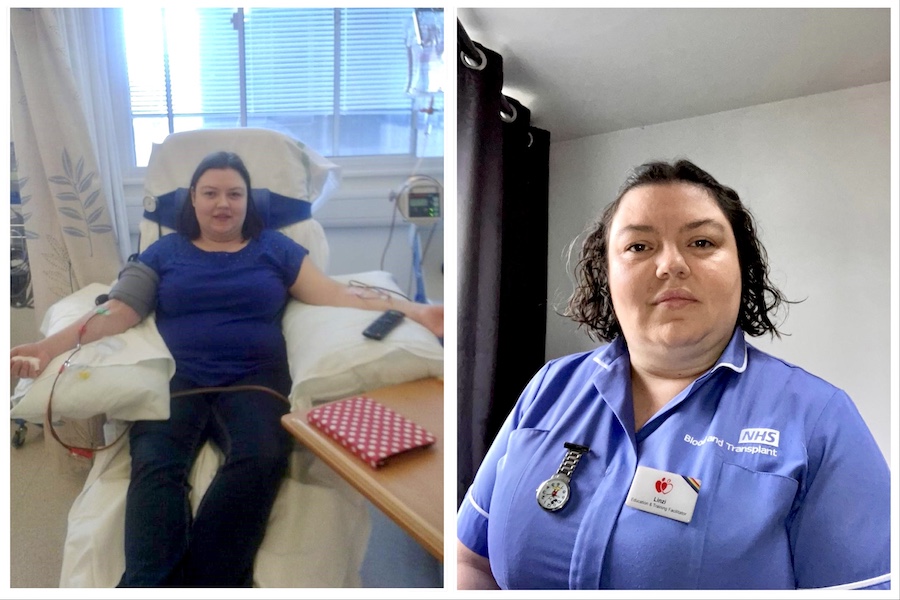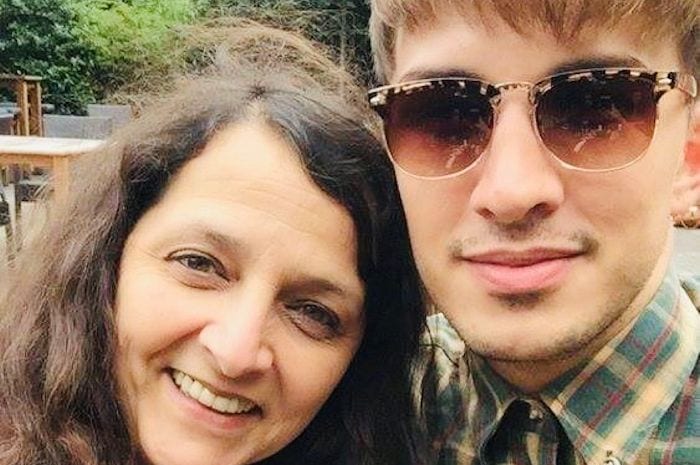Manchester Boxing Legend Ricky Hatton shares mental health and addiction troubles in a bid to help others
- Written by Joseph Timan
- Last updated 2 years ago
- Community, Featured

The British boxing champion has survived suicide attempts, drug addiction and an ugly fall out with his family.
The retired fighter from Hyde fell out with parents Carol and Ray Hatton over money resulting in a punch-up with his dad in a car park in 2009.
Nine years later, after addressing his own mental health issues, he made up with them.
But he says this experience of hitting rock bottom helps him sympathise with the young people coming through the doors of Centrepoint in Manchester’s Northern Quarter.
Hatton visited the Oldham Street base of the charity which helps teenagers to 25-year-olds facing homelessness on Tuesday (March 28).
“Even though I was not homeless, the worst part of my life is when I fell out with my family and I was suicidal,” he said. “So I get it. Sometimes it’s just the way it works out, to be honest with you.
“I’ve been through similar things from a mental health point of view, so I sympathise for these people more than most.”
Manchester council helped more people who had nowhere to live or were at risk of becoming homeless than any other local authority in England last year.
The town hall opened 6,525 homeless applications in 2021/22 – 54 per cent more than it did three years earlier and higher than any other council in the country.
The situation this year is said to be similar with the number of households in temporary accommodation standing at 3,189 by the end of 2022.
But as the impact of the cost of living crisis continues to be felt in the city, charities say more people are finding themselves homeless for the first time in their lives.
Research by Centrepoint suggests that 8,500 young people across Greater Manchester approached their local council because they were homeless, or at risk of homelessness, last year.
Freedom of Information requests submitted by the charity revealed that youth homelessness increased by 29 pc in Greater Manchester, compared to the previous year – however, some councils have disputed the data, highlighting inconsistencies in the way it was collected.
Hatton, a former world boxing champion, said that there were ‘nowhere near’ as many people on the streets when he was growing up in Greater Manchester.
Jobs are harder to come by now, he says, and the cost of living crisis has made things worse – but families always fall out and people lose their jobs, he adds.
Now a boxing trainer himself, Hatton says there are fewer opportunities for young people to stay out of trouble these days. He suspects that this explains the rise in knife crime in Greater Manchester and other parts of the country.
“There was a youth club on every corner when I was kid,” he said. “But there seems to be very, very, very little for our youth to do now and that’s why I think they’re getting in so much mischief – it’s because they’re bored.”
However, when people become homeless, Hatton says they are often ‘fobbed off’. It ‘infuriates’ him when he hears that homeless people are a ‘nuisance’ and wishes that people would be more ‘open minded’ and less judgemental.
He can’t help but give ‘a few quid’ to people the streets when on a night out in Manchester. However, he admits that this might not be the best way of helping.
For those with addiction problems, he says, this might make matters worse. So, although he does not doubt the sincerity of beggars, perhaps it’s better to put money towards a cause that gets to the core of the problem, he concludes.
That’s why he wanted to visit Centrepoint, he says – to see what they do for himself. The 44-year-old who has worked with homelessness charities such as Barnabus before, listened in on calls to Centrepoint’s helpline during the visit.
He learned what people go through to get to that point, he explains. Whether it’s mental health, addiction or family fall-outs, he says, “it’s heartbreaking.”
However, he says the young people he met on the visit are ‘proof’ you can turn your life around with the right support. “I made up with my family,” he says.
“I picked up the phone regarding my mental health and I made up with my mum and dad. I had to say let bygones be bygones.
“What happened with my family doesn’t matter. It’s all about moving forward and putting the past behind.
“If I hadn’t picked up the phone and spoken to someone, I’d have still been on the warpath as far as my family goes. But, of course, I got in a better place because I picked the phone up and got my problems all sorted out – I was able to deal with my life a lot better.”
The Freephone Centrepoint Helpline number is is available for any young person aged 16 to 25 worried about homelessness and is open Monday to Friday, 9am to 5pm. The number is.
Anyone aged 16 to 25 worried about homelessness can call the Freephone Centrepoint Helpline on 0808 800 0661 from Monday to Friday, 9am to 5pm.
- This article was last updated 2 years ago.
- It was first published on 29 March 2023 and is subject to be updated from time to time. Please refresh or return to see the latest version.
Did we miss something? Let us know: press@ilovemanchester.com
Want to be the first to receive all the latest news stories, what’s on and events from the heart of Manchester? Sign up here.
Manchester is a successful city, but many people suffer. I Love Manchester helps raise awareness and funds to help improve the lives and prospects of people across Greater Manchester – and we can’t do it without your help. So please support us with what you can so we can continue to spread the love. Thank you in advance!
An email you’ll love. Subscribe to our newsletter to get the latest news stories delivered direct to your inbox.
Got a story worth sharing?
What’s the story? We are all ears when it comes to positive news and inspiring stories. You can send story ideas to press@ilovemanchester.com
While we can’t guarantee to publish everything, we will always consider any enquiry or idea that promotes:
- Independent new openings
- Human interest
- Not-for-profit organisations
- Community Interest Companies (CiCs) and projects
- Charities and charitable initiatives
- Affordability and offers saving people over 20%
For anything else, don’t hesitate to get in touch with us about advertorials (from £350+VAT) and advertising opportunities: advertise@ilovemanchester.com


Review: Tambo & Bones at HOME is ‘ambitious, bold, gutsy…. and terrific’

Review: JB Shorts 26 at 53two is ‘a five-star showcase of northern talent’


















